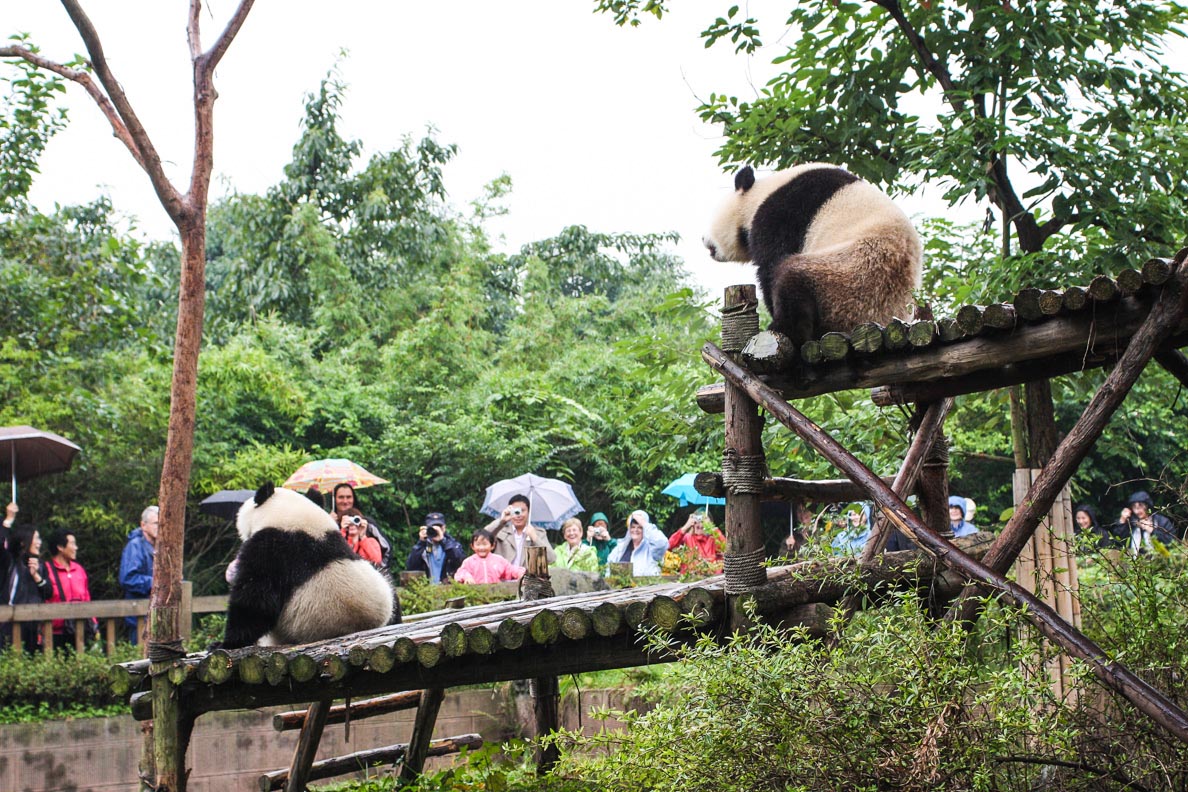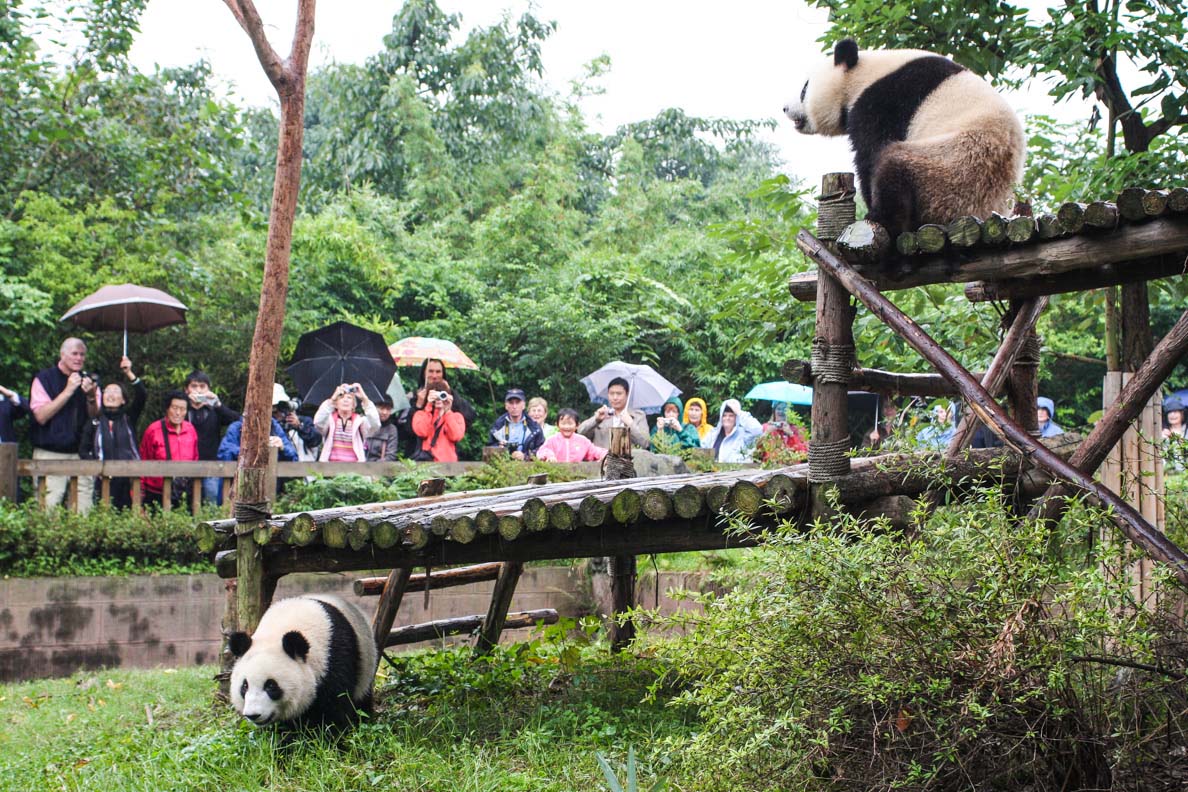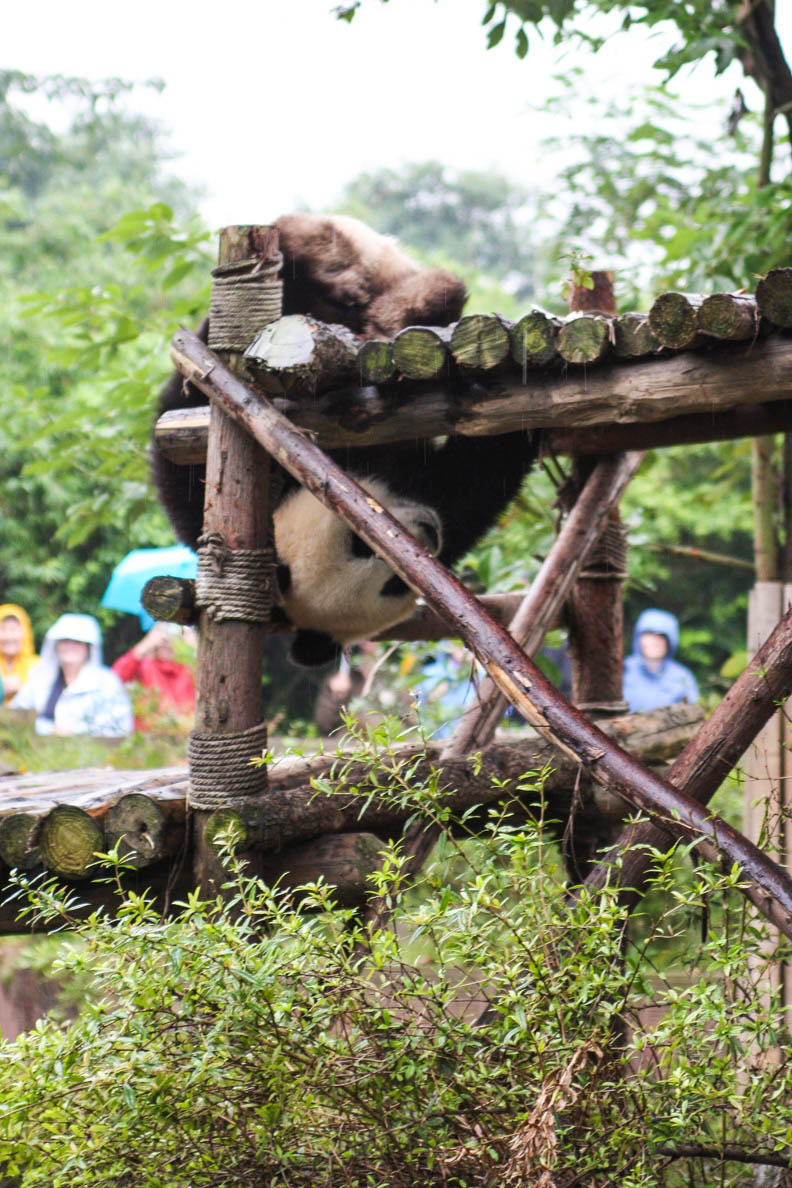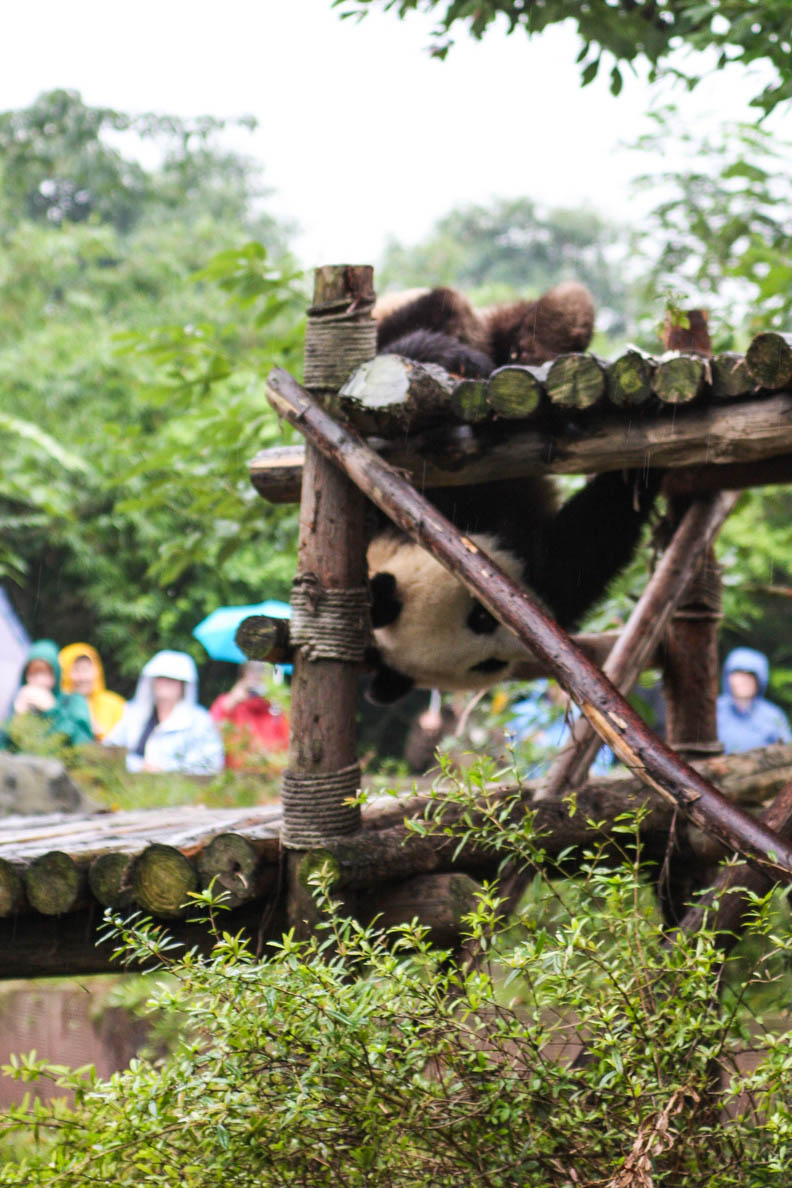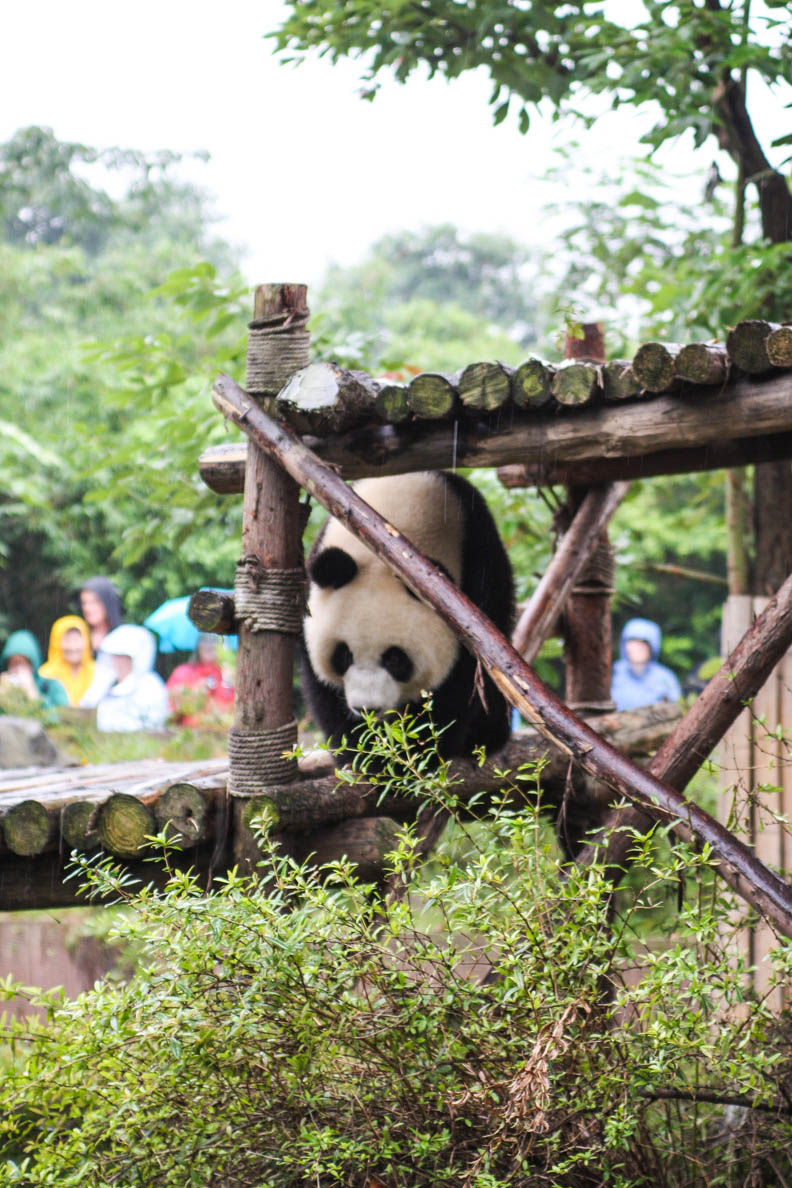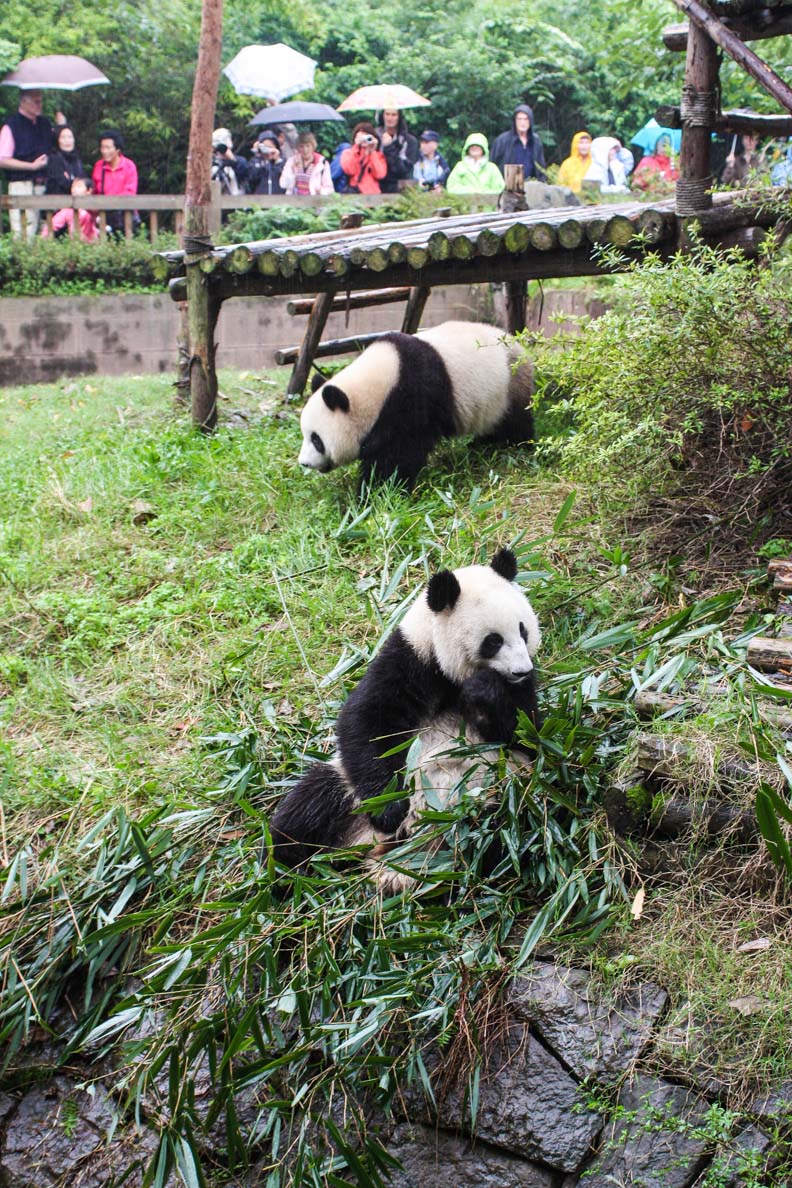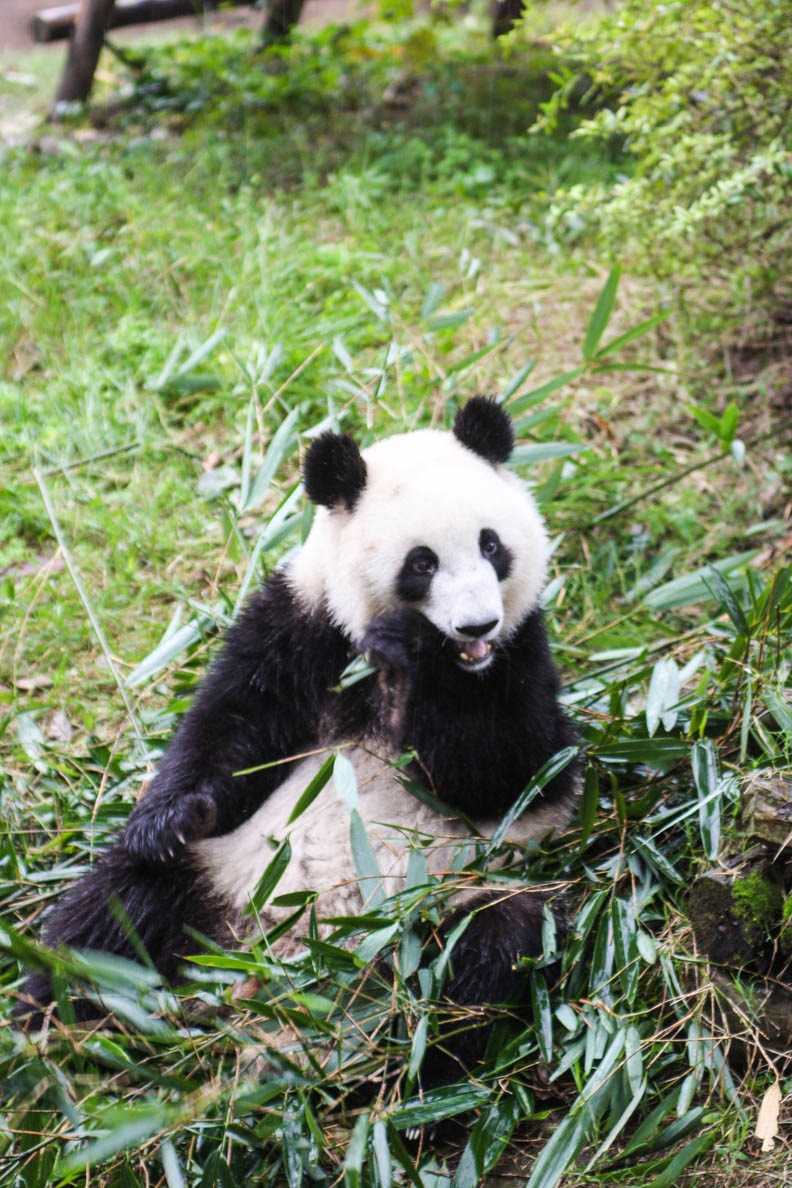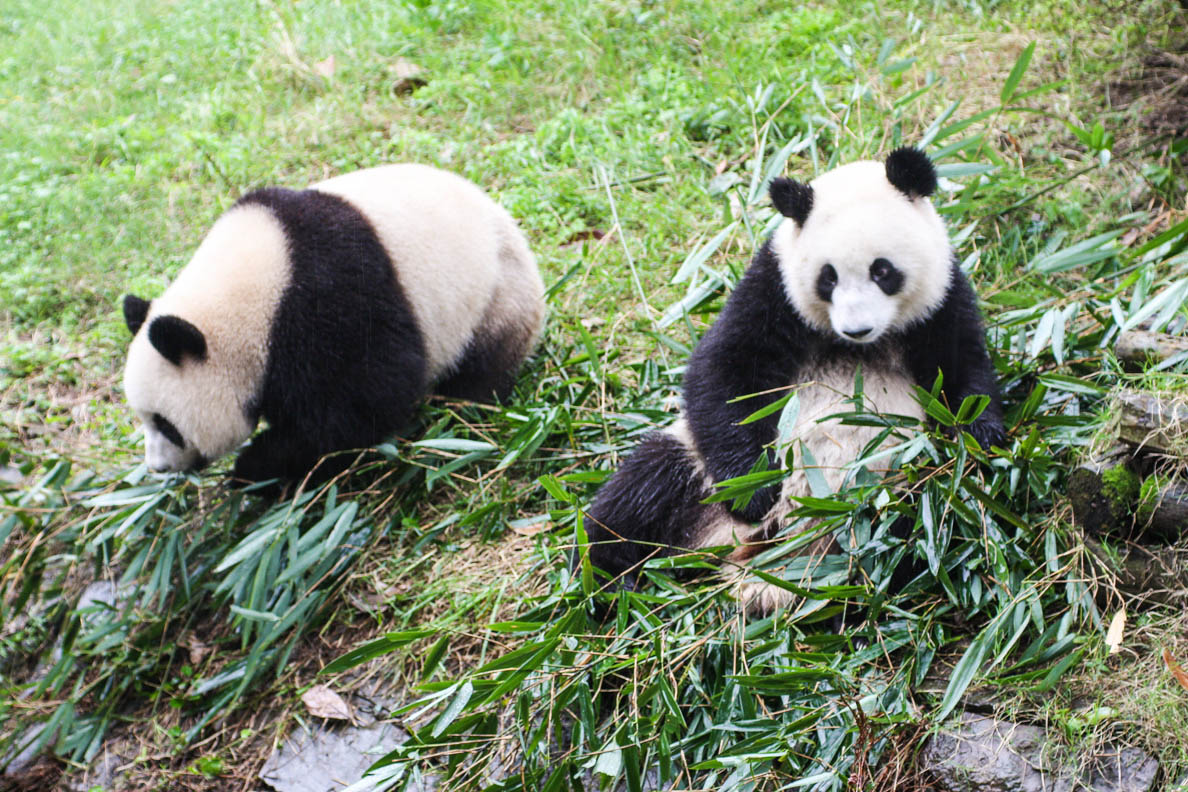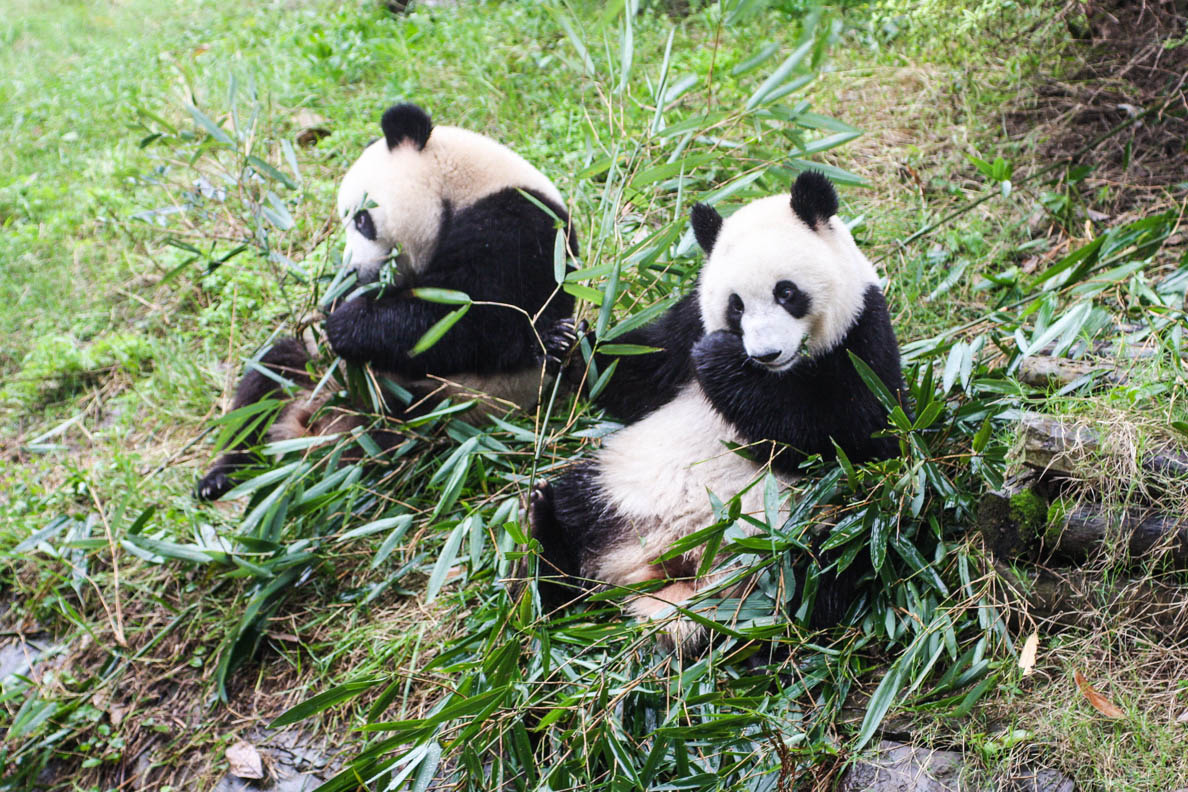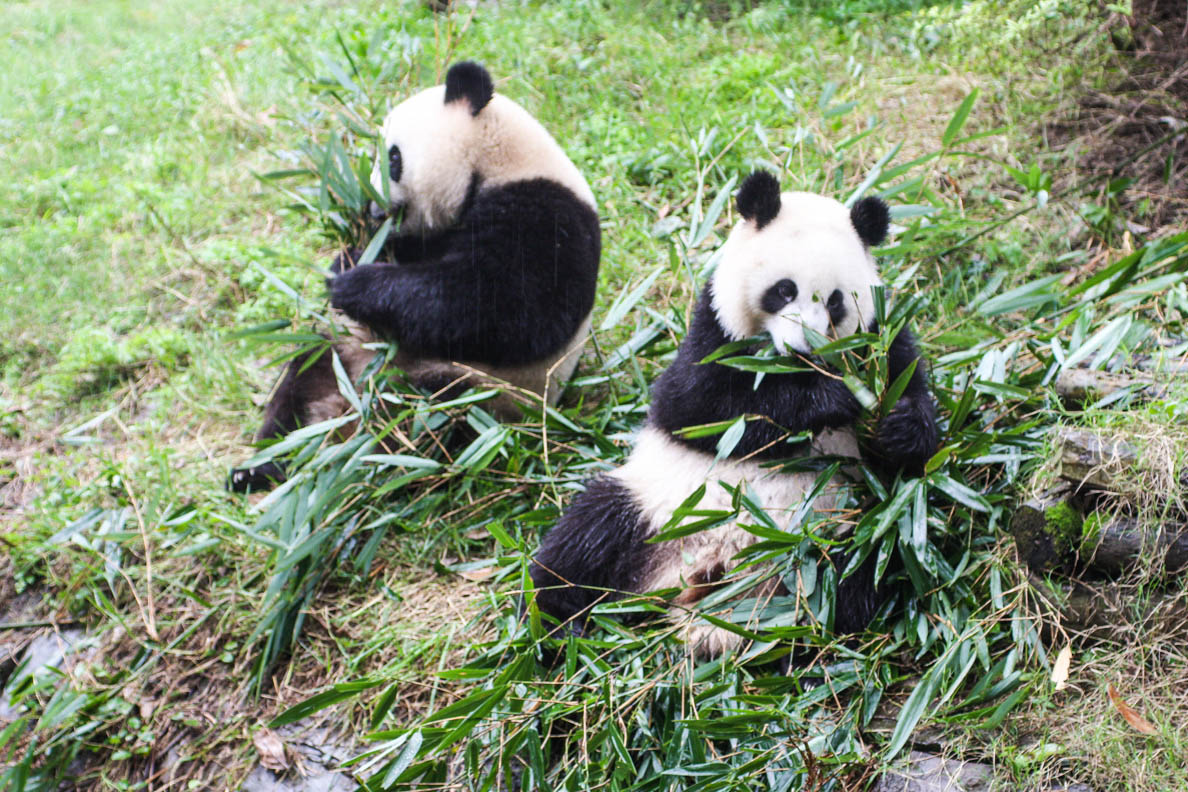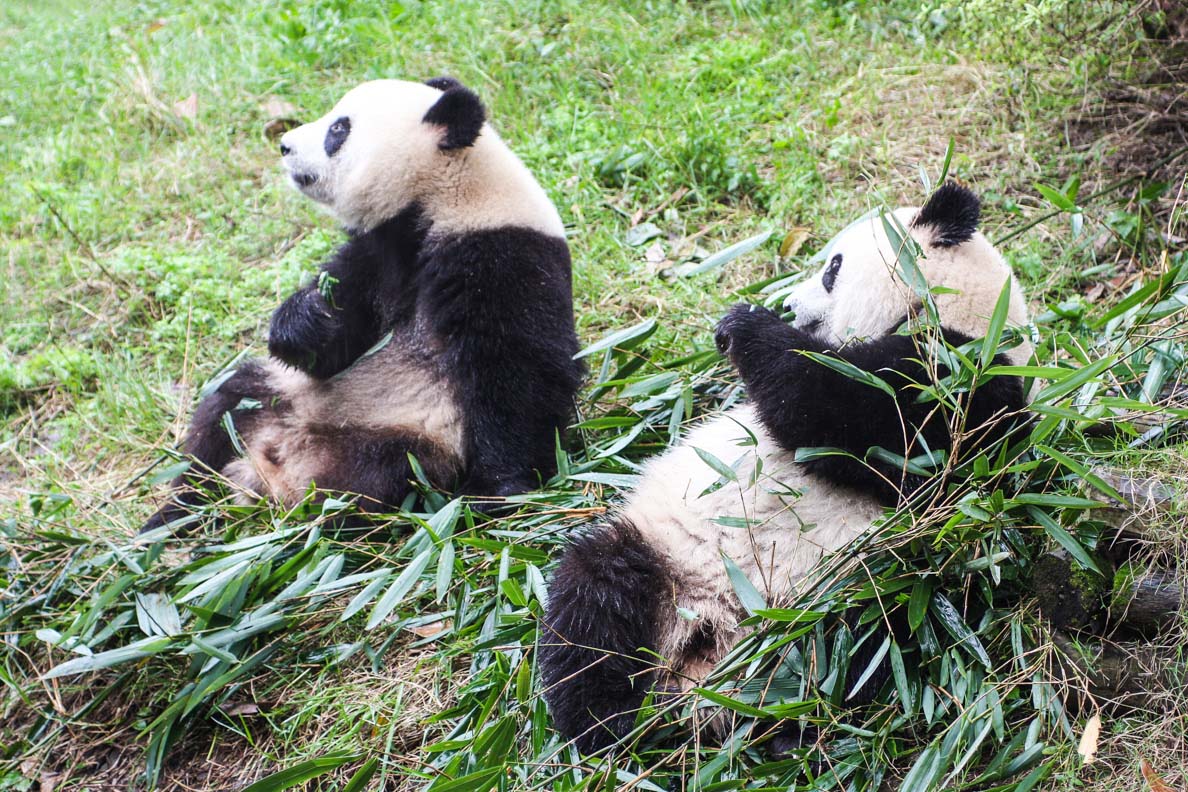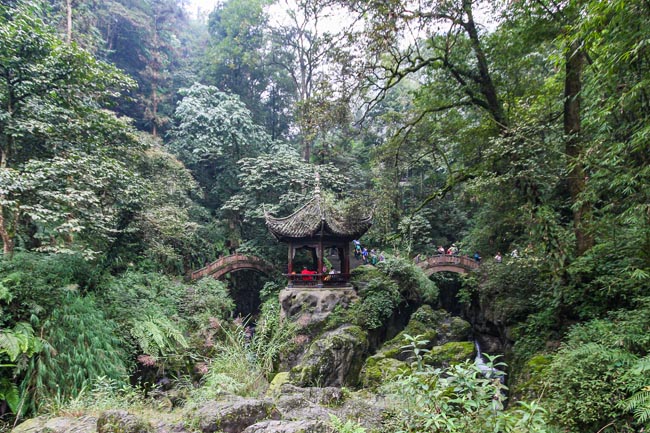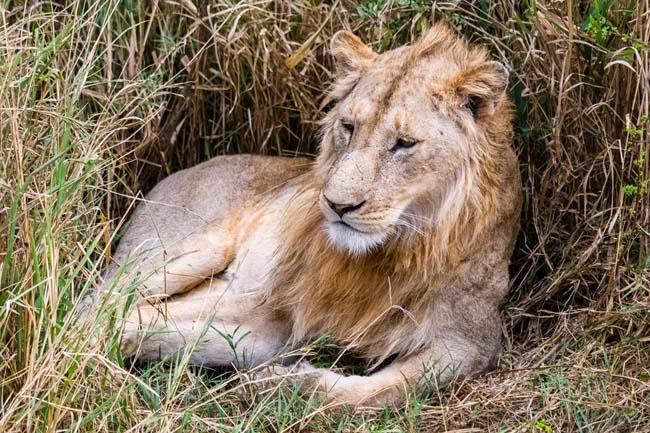CHINA
CHENGDU RESEARCH BASE
OF GIANT PANDA
BREEDING
成都大熊貓繁育研究基地
October 2009 • Canon 40D camera
1375 Xiongmao Avenue Chenghua, Chengdu
www.panda.org.cn
This morning we jumped on our minibus to the Giant Panda breeding base, 6 miles from the north east of Chengdu. It is considered one of the best places to see Pandas, with the goal of being a “world-class research facility, conservation education center, and international educational tourism destination”. Founded in 1987, the base is dedicated to the protection of the endangered Pandas. The Breeding and Research base do this by breeding and raising the pandas. When they are ready to fend for themselves, they are released into their natural habitat. The base is not a zoo. It is a huge conservation center that makes it feel like a natural habitat for the pandas.
The breeding base was quite big and green, with tall bamboos lining the paths as we made our way to the many areas in the base to see the pandas. It was a cloudy day with light drizzle, but that didn’t stop the Giant Panda’s coming out and pleasing everyone that had travel from a far to see them. Most of the Pandas were quite content to sit and eat most of the time. We were lucky to be there at the time when two children Pandas were quite active playing and rolling around with each other. The base is also top in it's field for breeding new born Panda’s and we were lucky to see new born baby panda a couple of weeks old in a research room viewable only by a large glass window. Panda's are too cute, and should be visited if you are ever in Chengdu.
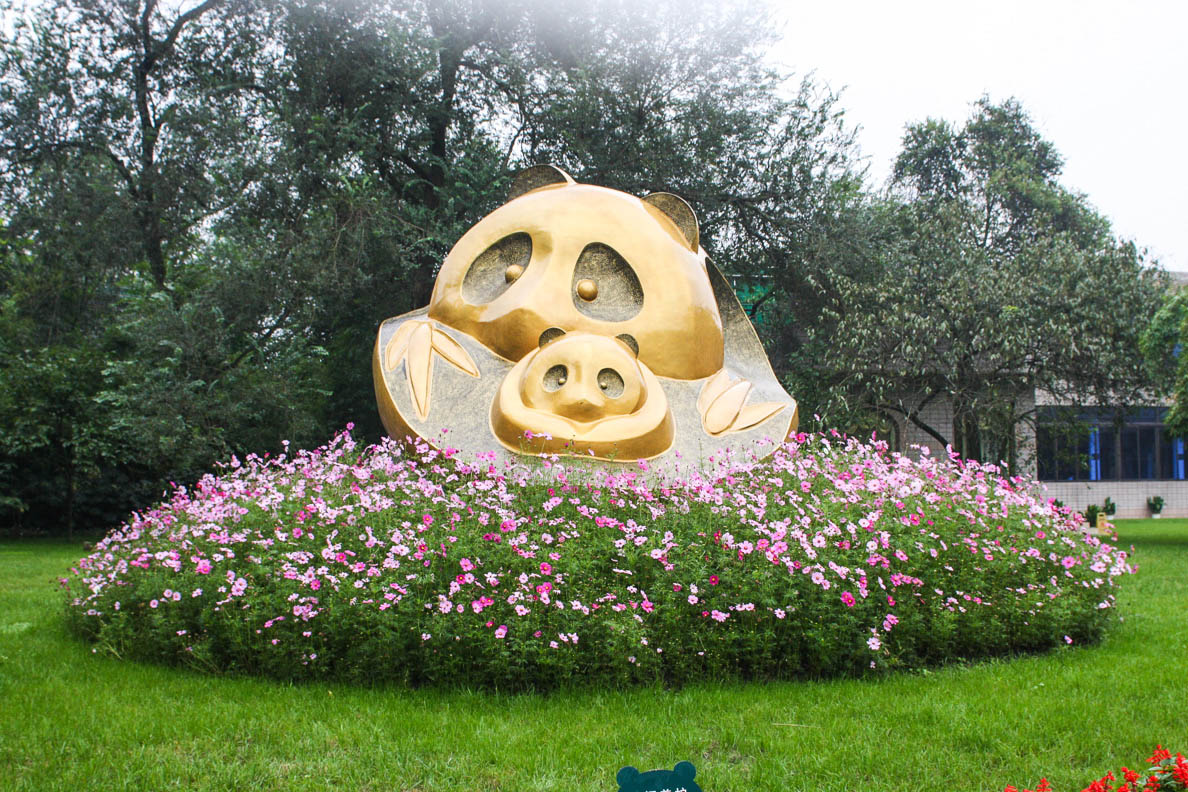


Giant Panda 大熊猫
(Ailuropoda melanoleuca)
Eating exclusively bamboo, Giant Panda’s seem to live a leisurely life. They can spend around 10–12 hours a day feeding. They are currently classified as vulnerable on the IUCN Red List of Threatened Species due to the habitat loss and low birth rate.
At one time classified as endangered species, the Chinese government has made great progress to turn that around and put in protective measures to help the Giant Pandas. Conservation and research centers such as this one in Chengdu, gives us hope that the Giant Pandas will survive and continue to be worldwide symbol of animal conservation.
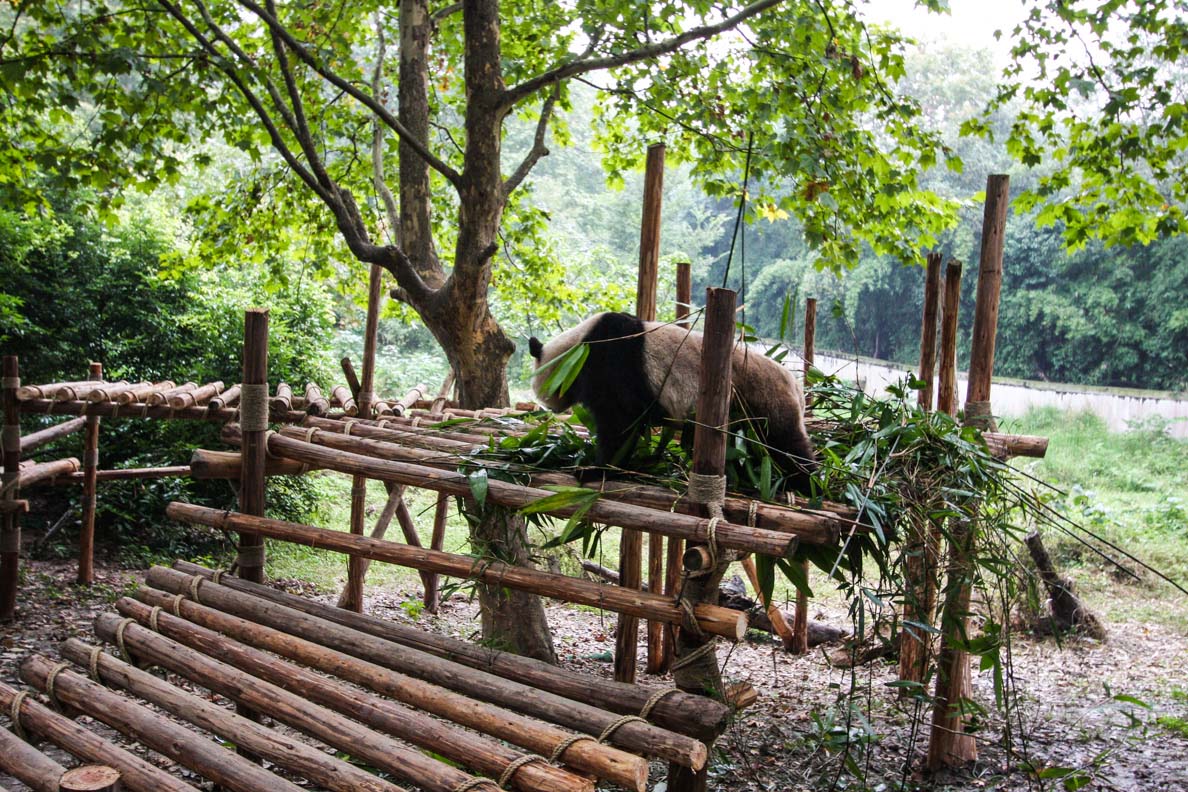
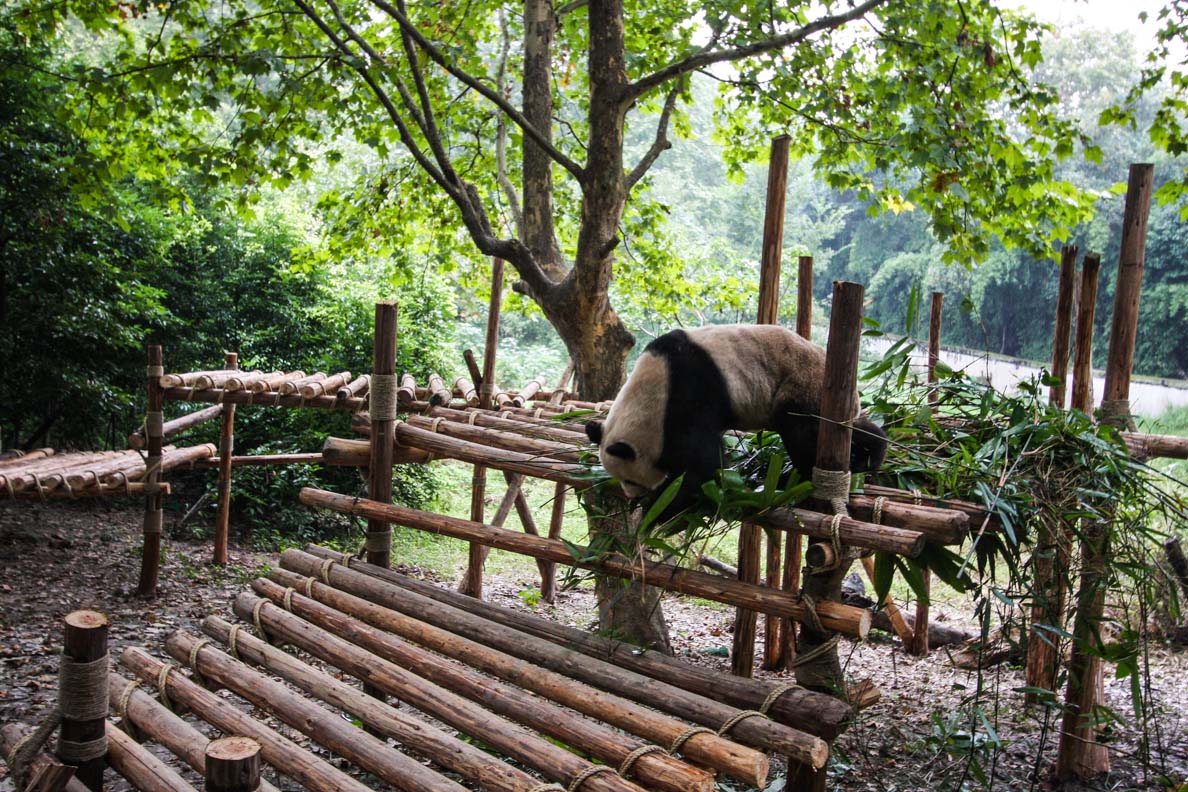
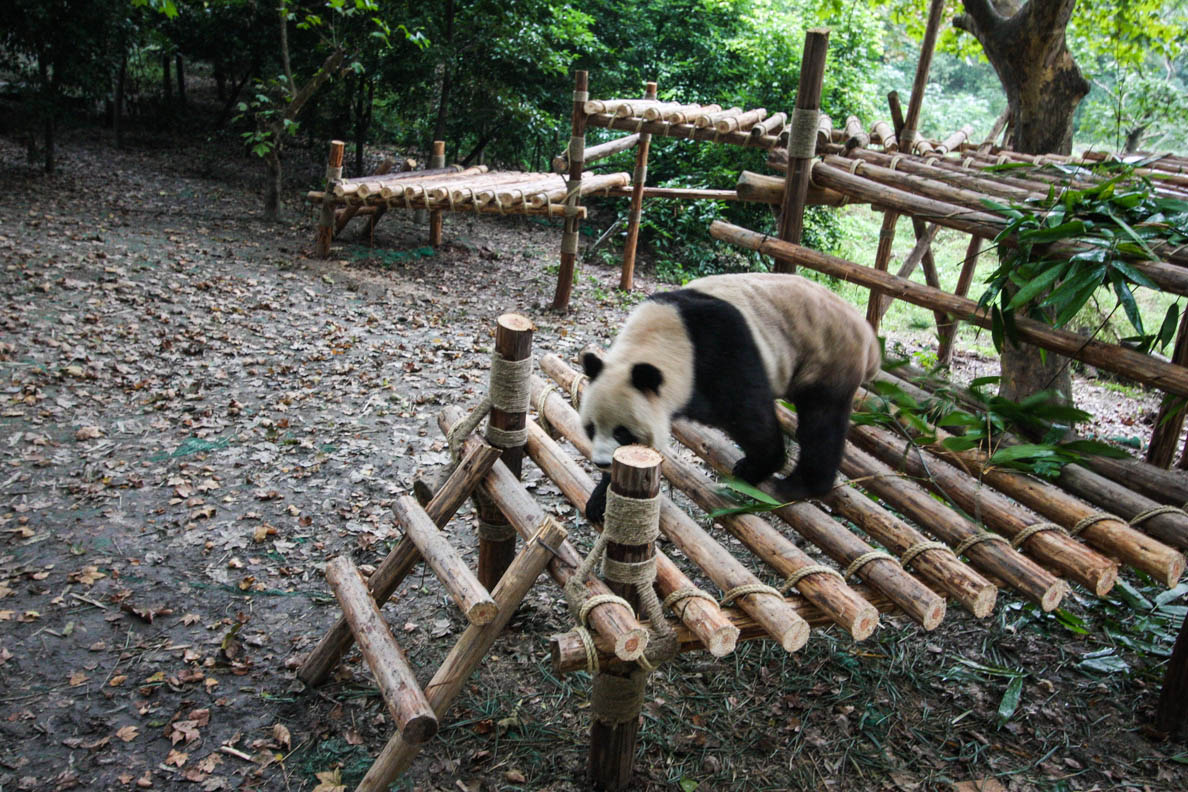
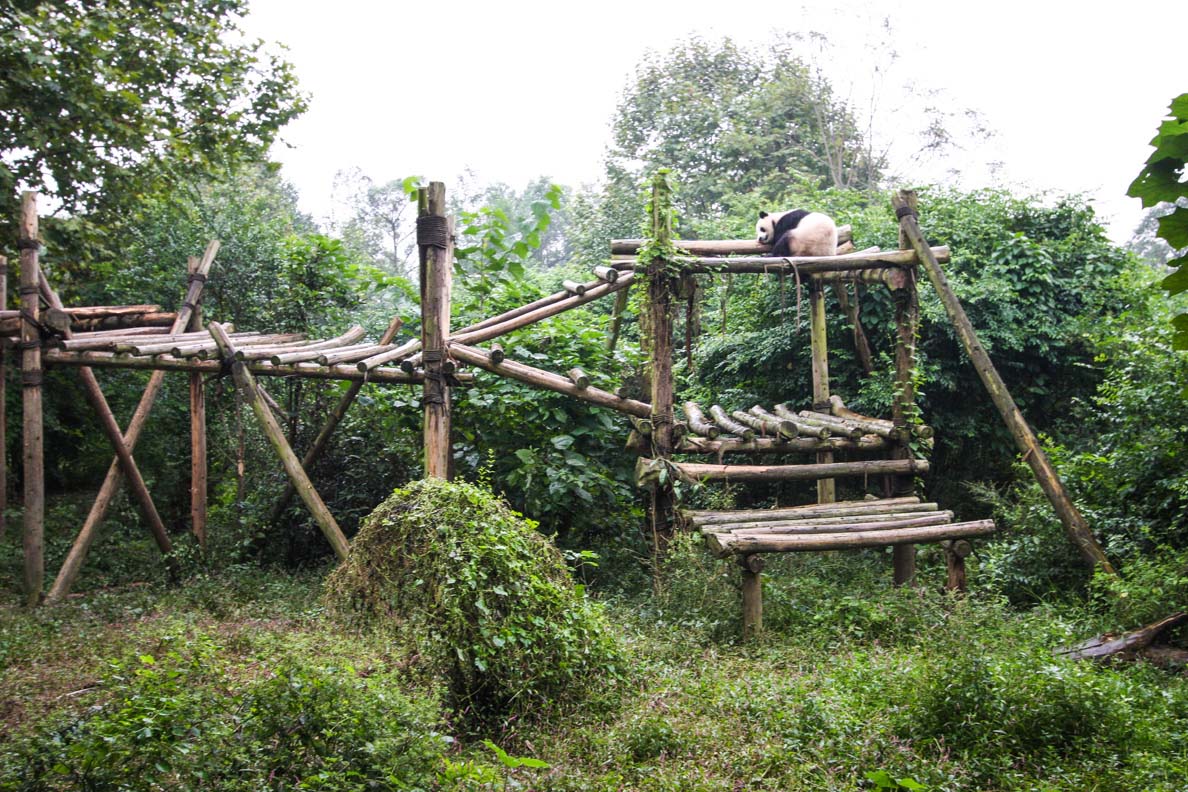
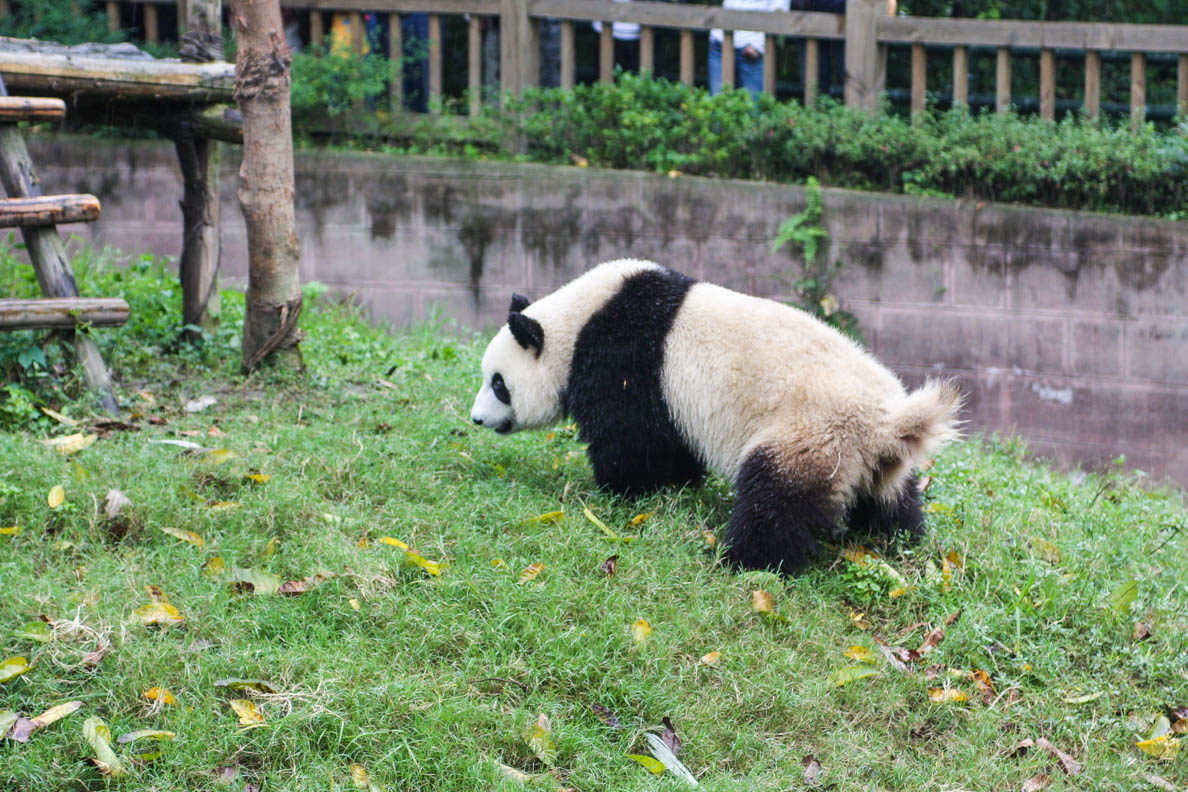
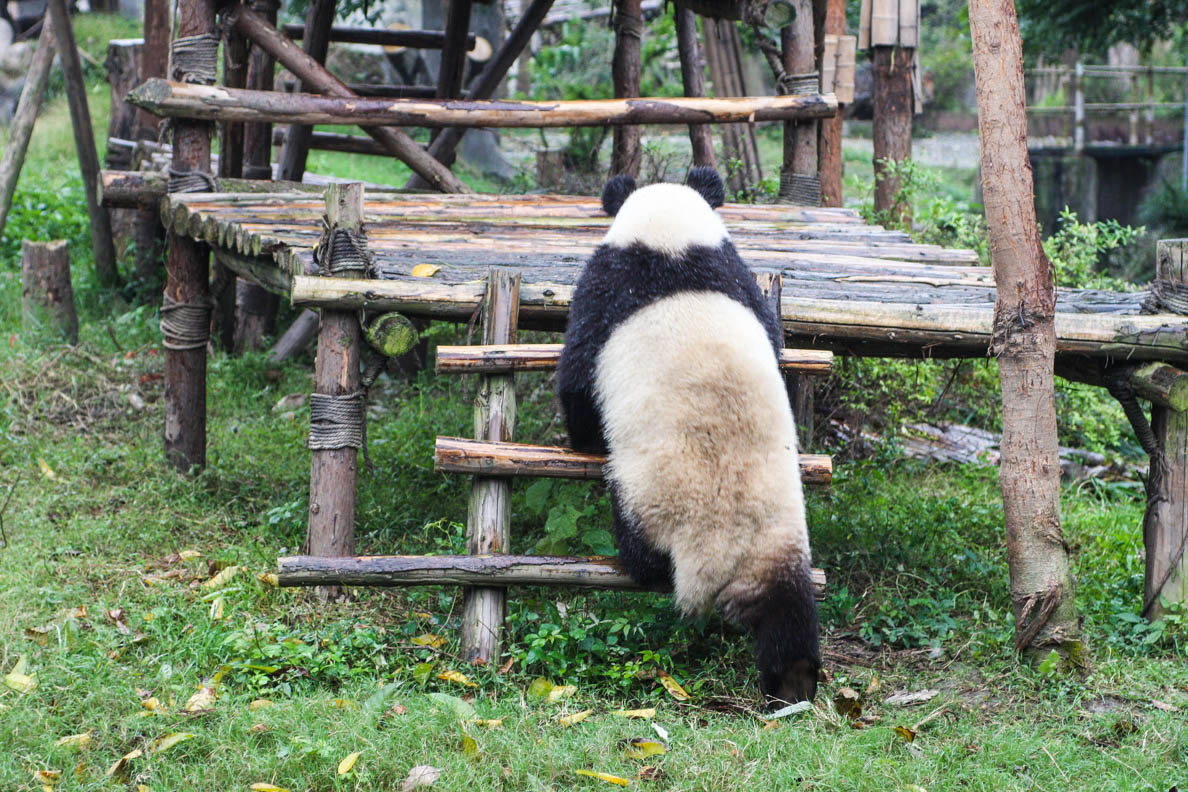
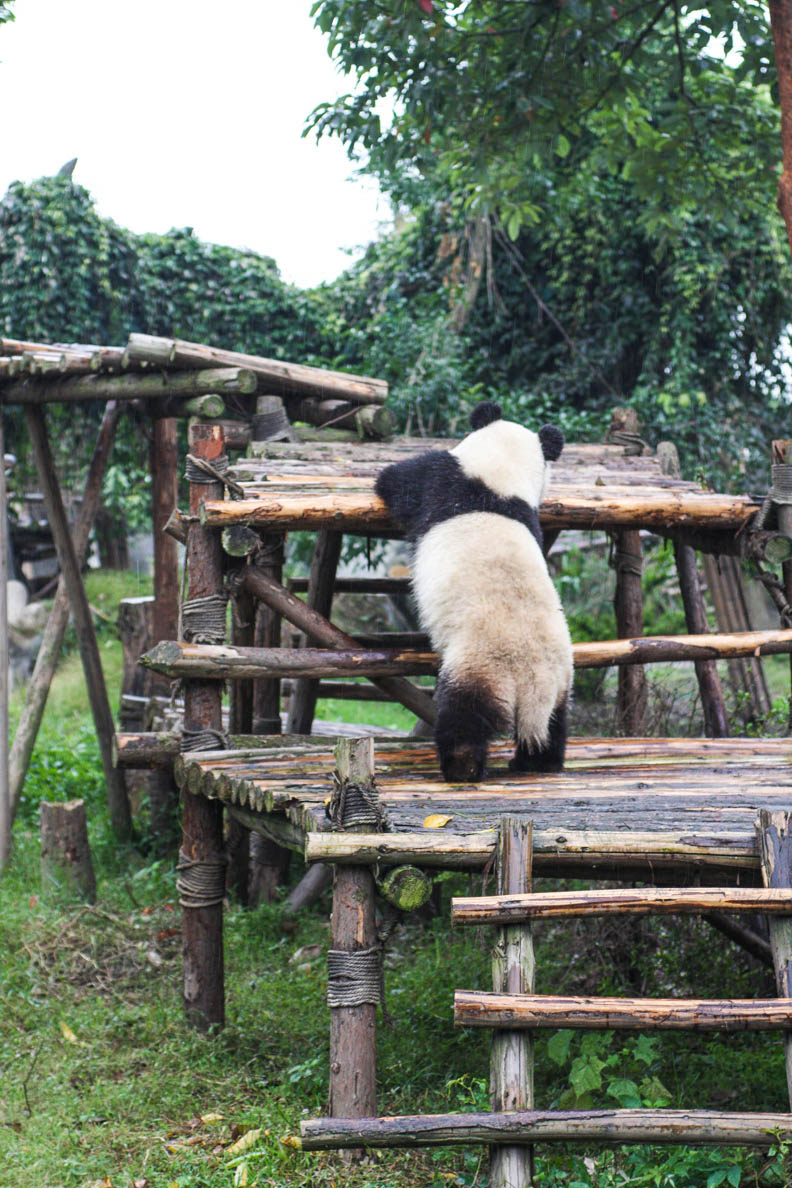
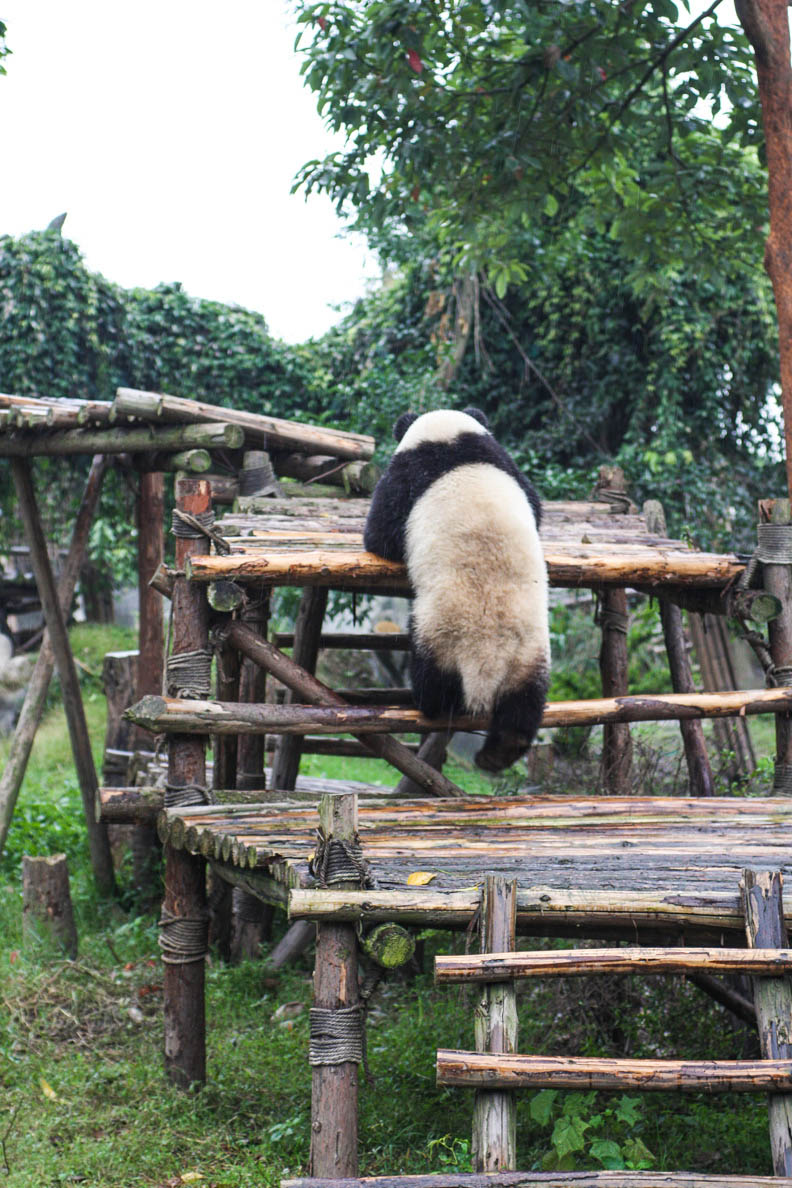
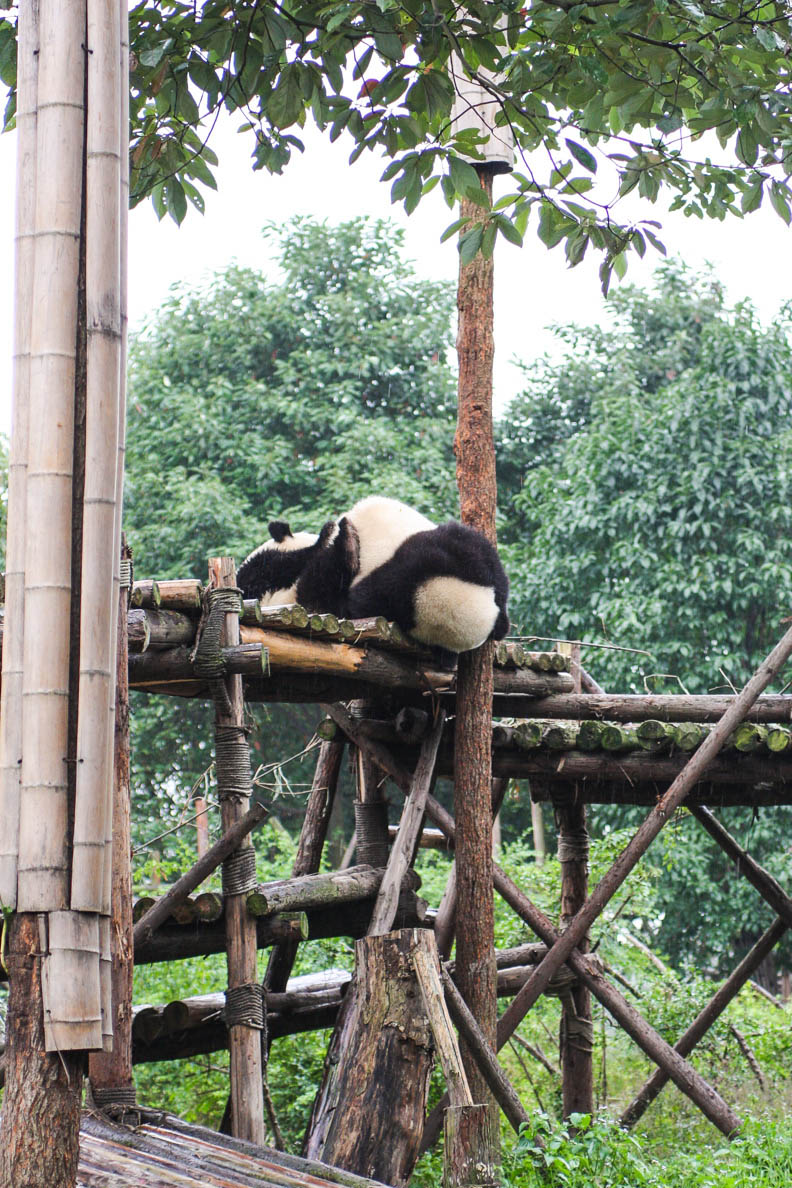
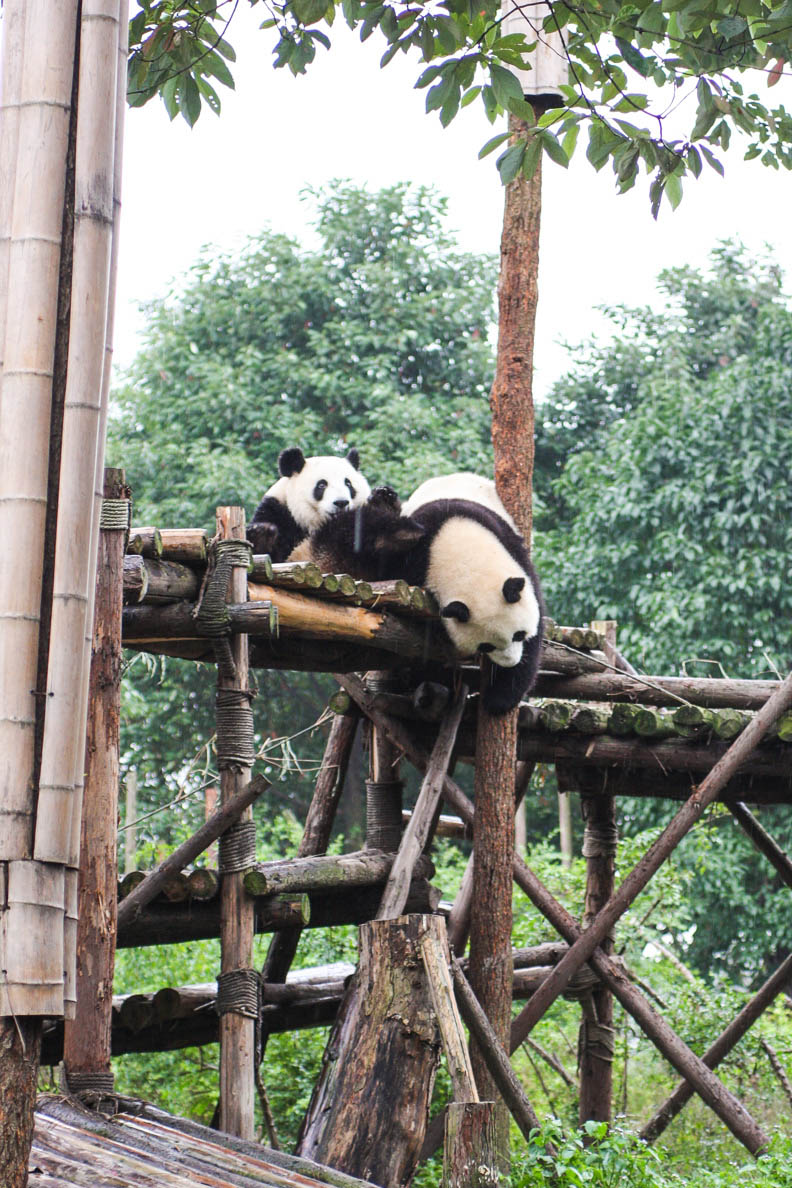
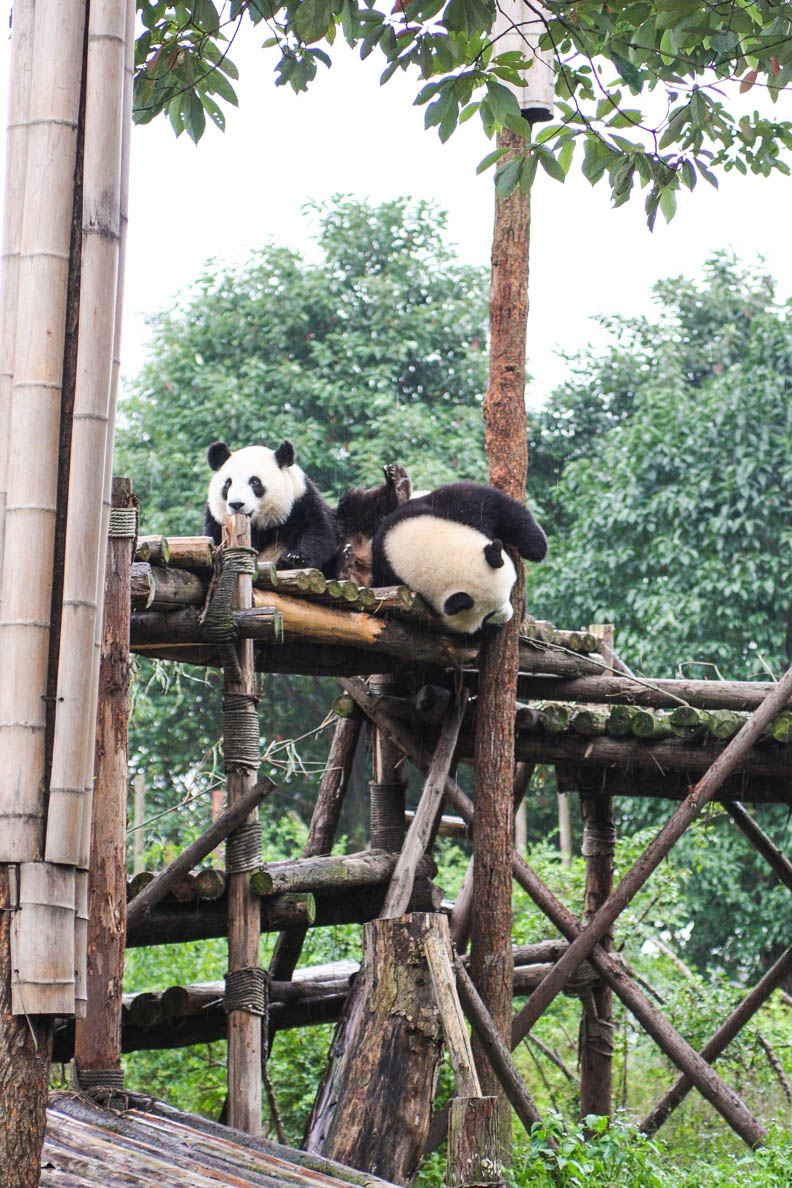
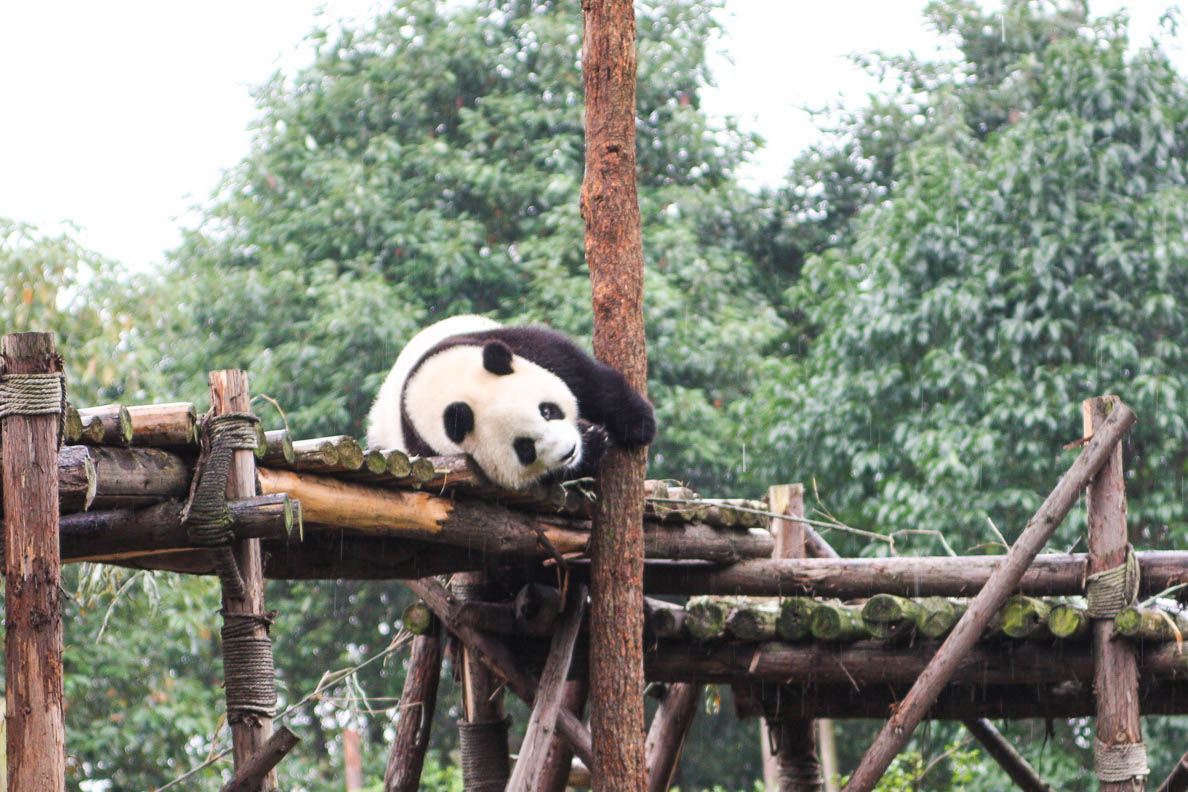
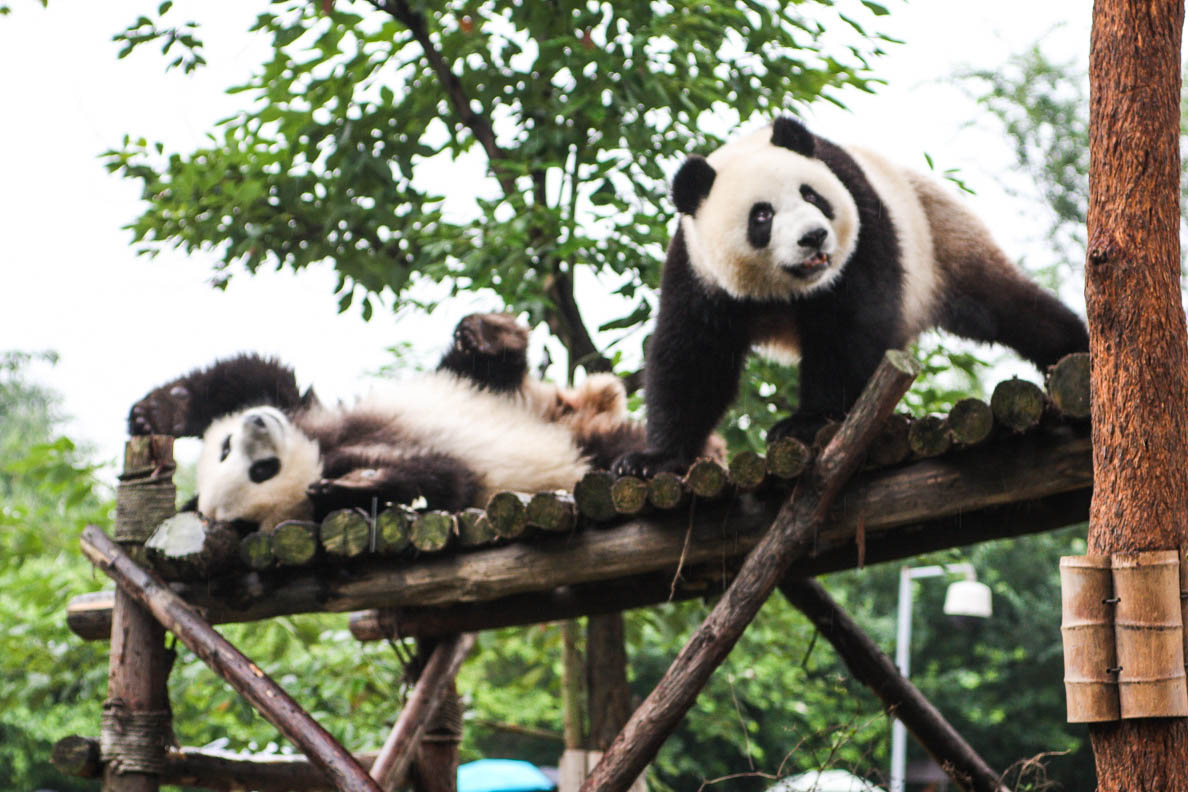
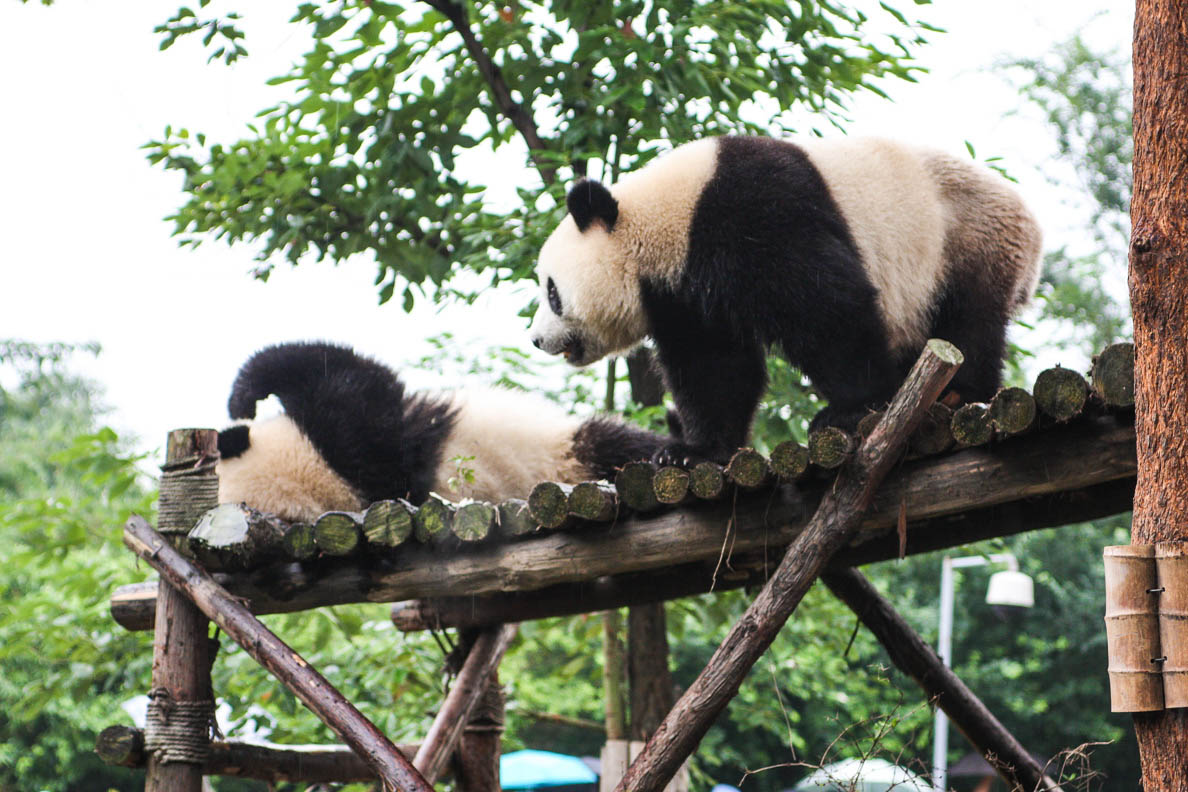
Did you know...
Unlike other bears, Pandas don't hibernate. However, it will descend to lower elevations during winter. They also do not build permanent dens, but rather take shelter in caves. Giant pandas are solitary, except for the breeding season.
